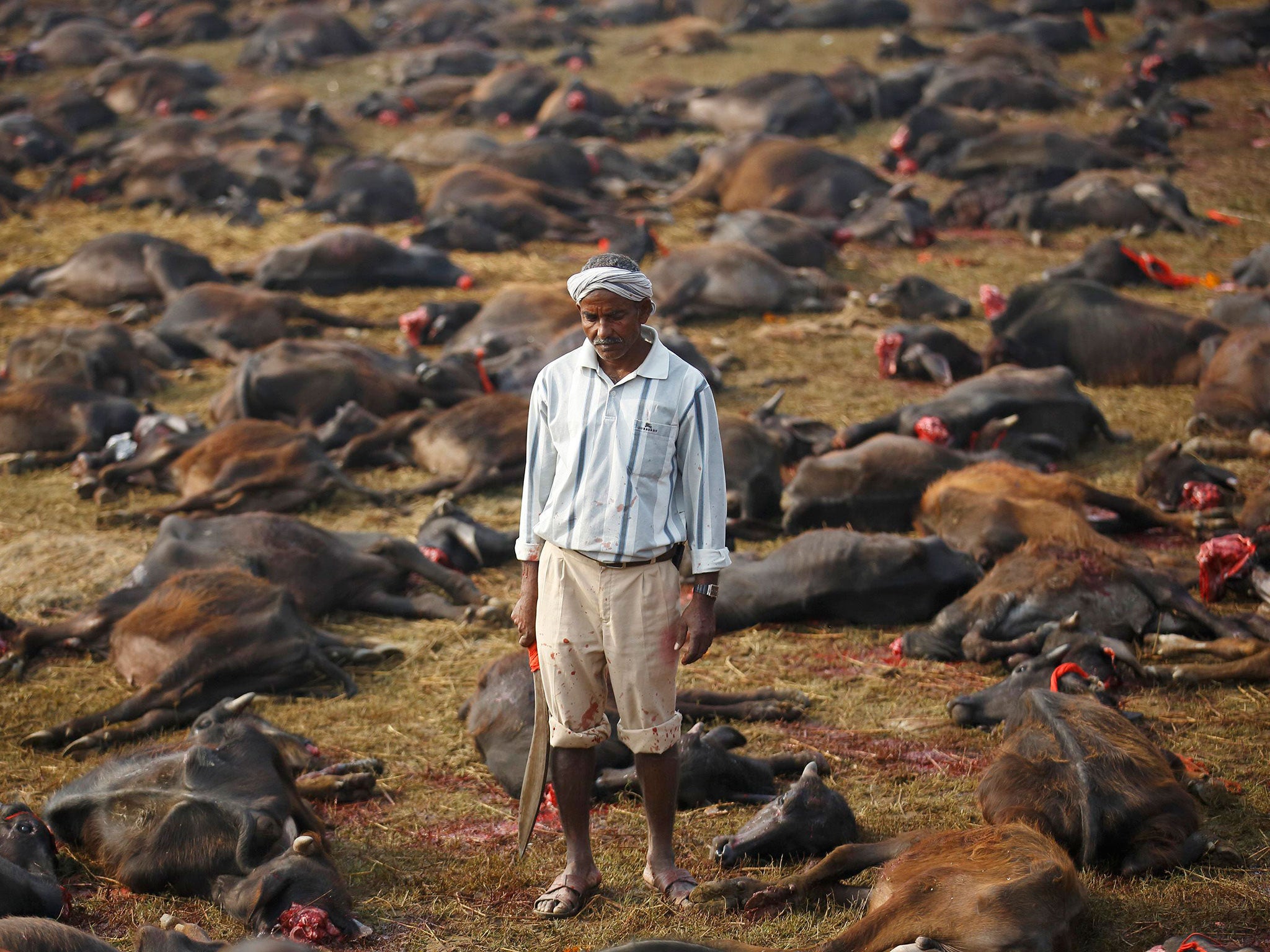Slaughter of half a million animals halted as Nepal temple's traditional sacrifice banned
The festival at the Gadhimai temple has attracted worshippers from India and Nepal for centuries

Your support helps us to tell the story
From reproductive rights to climate change to Big Tech, The Independent is on the ground when the story is developing. Whether it's investigating the financials of Elon Musk's pro-Trump PAC or producing our latest documentary, 'The A Word', which shines a light on the American women fighting for reproductive rights, we know how important it is to parse out the facts from the messaging.
At such a critical moment in US history, we need reporters on the ground. Your donation allows us to keep sending journalists to speak to both sides of the story.
The Independent is trusted by Americans across the entire political spectrum. And unlike many other quality news outlets, we choose not to lock Americans out of our reporting and analysis with paywalls. We believe quality journalism should be available to everyone, paid for by those who can afford it.
Your support makes all the difference.The lives of up to half a million animals have been spared after officials banned a traditional sacrifice at a temple in southern Nepal.
Gadhimai temple, in Bara district, attracts millions of pilgrims from India and Nepal every five years for the Gadhimai festival in which hundreds of thousands of animals are slaughtered.
Hindu worshippers have made the sacrifices to Gadhimai, a goddess of power, for at least the last 265 years, although some claim the custom dates back as long as four centuries.
The practice has drawn condemnation from animal rights groups around the world but Motilal Prasad, secretary of the Gadhimai Temple Trust, said the slaughter would now be put to an end.
"We have decided to completely stop the practice of animal sacrifice," he told AFP.
"I realised that animals are so much like us – they have the same organs as us… and feel the same pain we do."
In 2009, half a million animals including buffaloes, goats and chickens were killed at the temple, located 90 miles south of Kathmandu, according to the Humane Society International.
At last year's event, millions of worshippers sacrificed around 200,000 animals after the Supreme Court in India banned the illegal movement of animals across the border to Nepal in October 2014.
“It won’t be easy to end a 400-year-old custom… but we have four years to convince people that they don’t need to sacrifice animals to please the goddess,” said Mr Prasad.
Campaigners welcomed the victory.
Gauri Maulekhi, from the Humane Society International (HSI), said: "This is a tremendous victory for compassion that will save the lives of countless animals. HSI/India was heartbroken to witness the bloodshed at Gadhimai, and we've worked hard to help secure this ban on future sacrifice."
The period until the next festival will be spent educating people about the temple's decision to not sacrifice animals, said Mr Maulekhi.
"Animal sacrifice is a highly regressive practice and no nation in the modern world should entertain it," he added.
Manoj Gautam of Animal Welfare Network Nepal told Reuters: “Obviously we are very happy with this decision. But it doesn’t mean our job is done… We need public support and participation to make sure this ban is upheld."
“We realise that people have been victimised by superstition so building mass awareness is critical, but I am very hopeful that we will see a bloodless festival in 2019," Mr Gautam told AFP.
Join our commenting forum
Join thought-provoking conversations, follow other Independent readers and see their replies
Comments